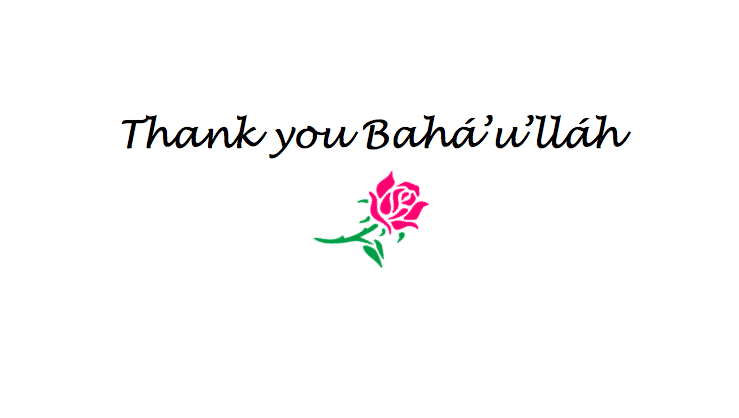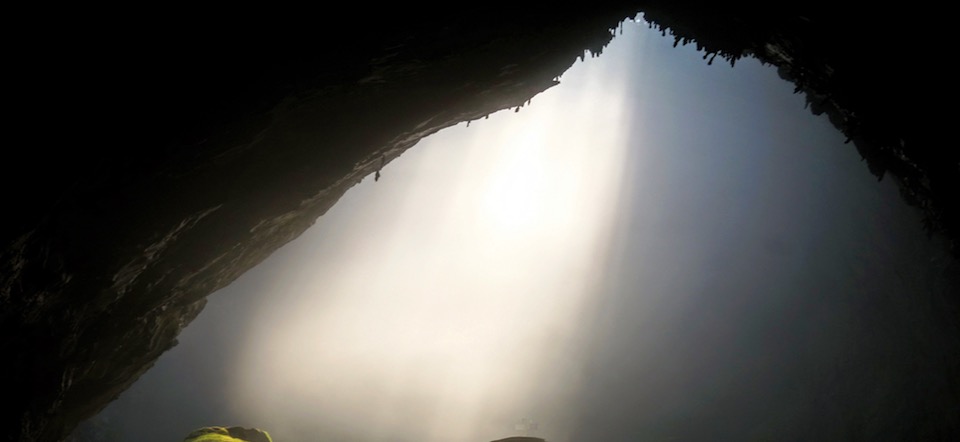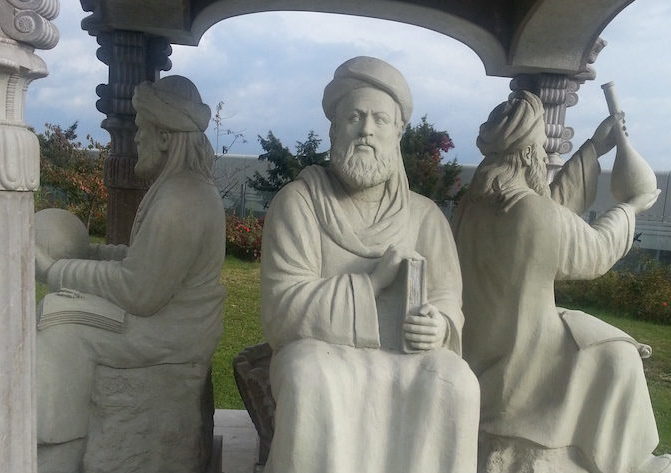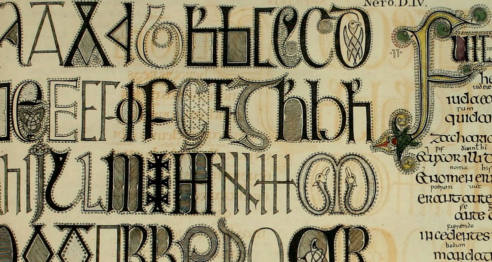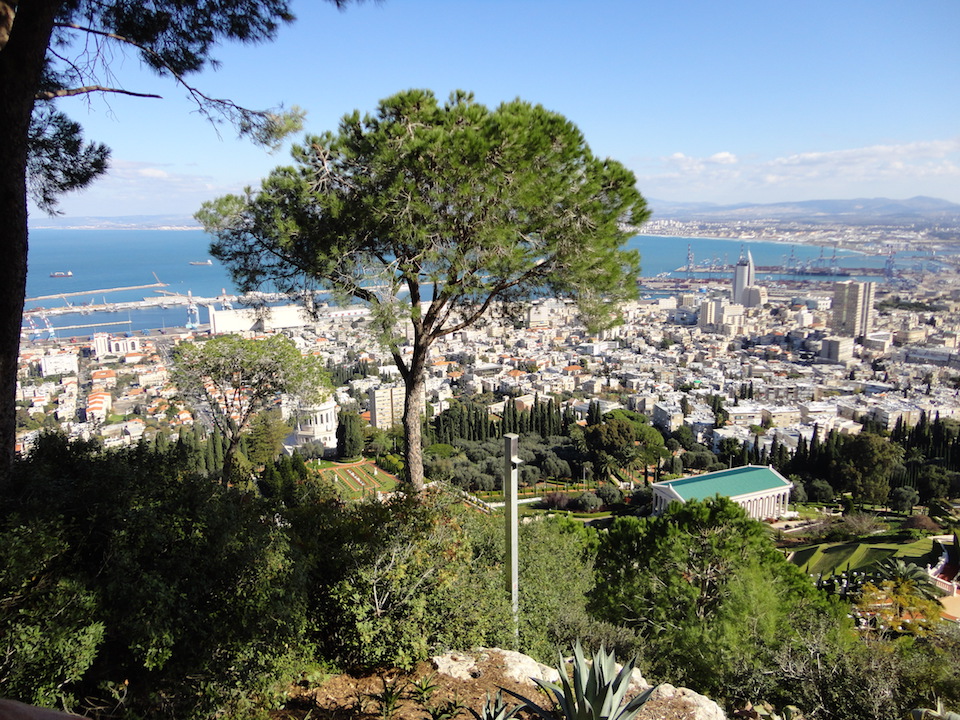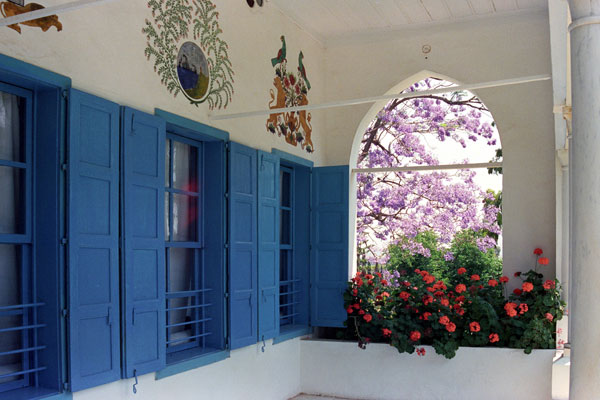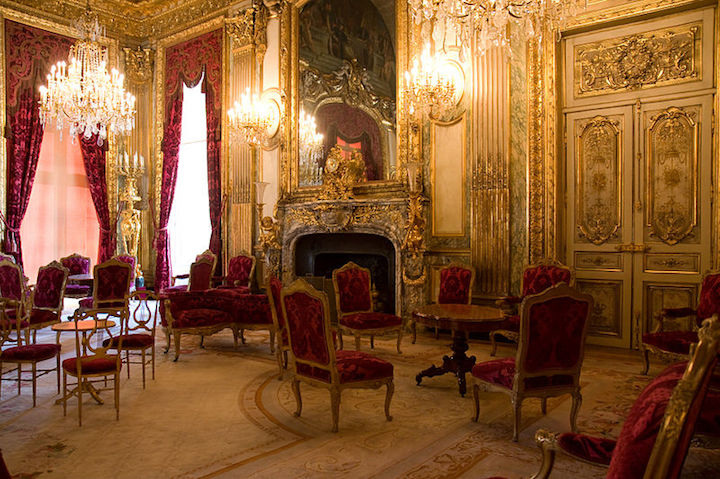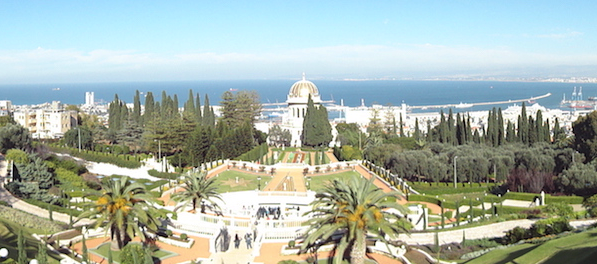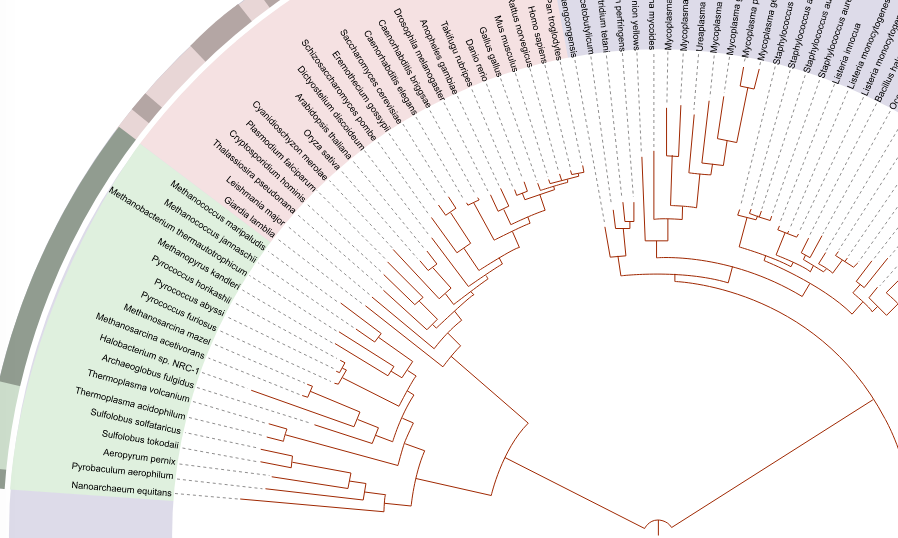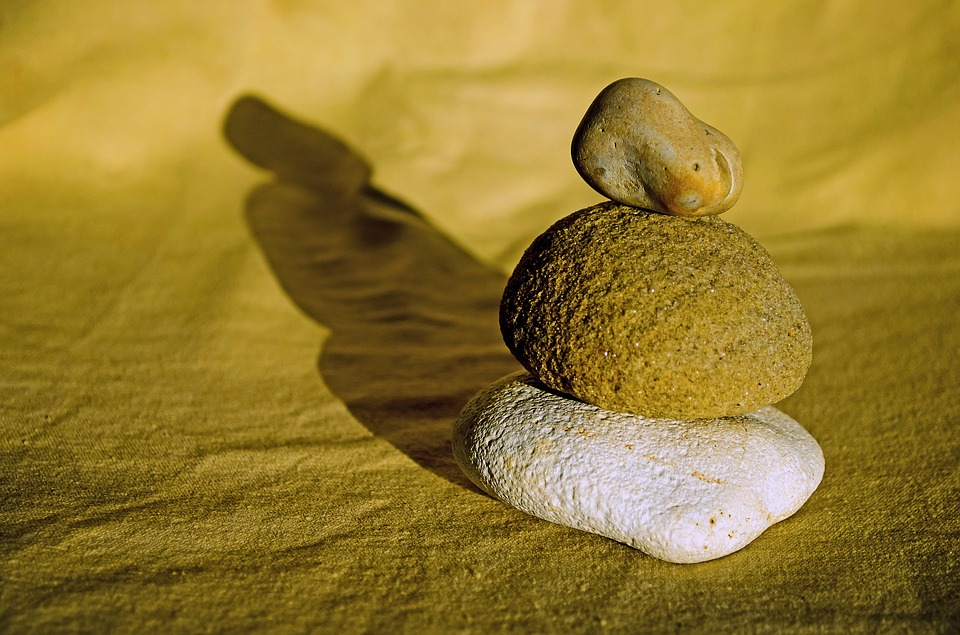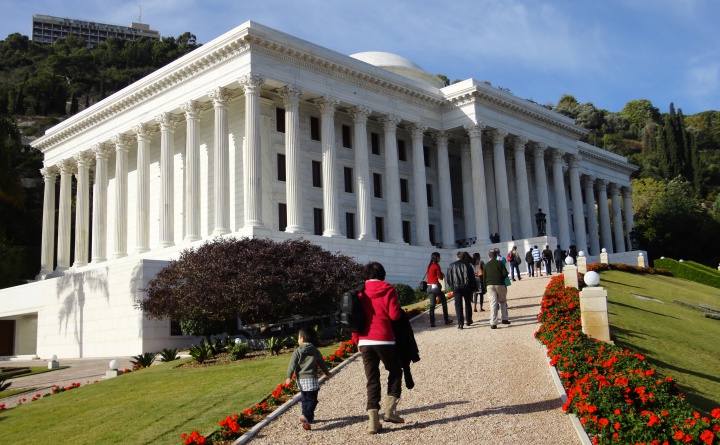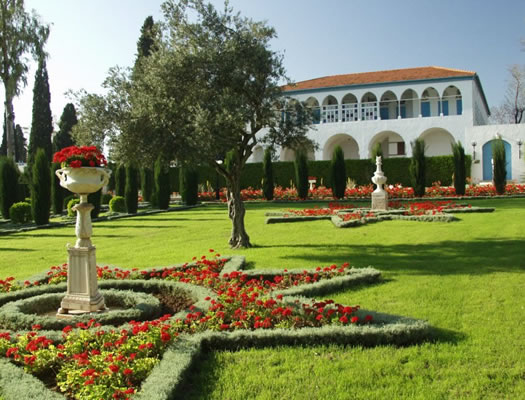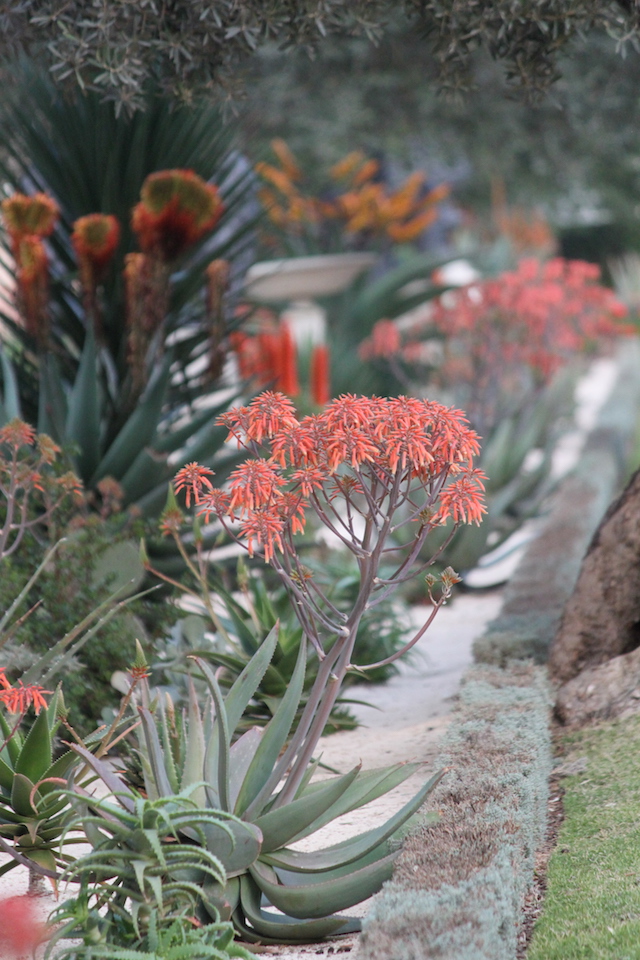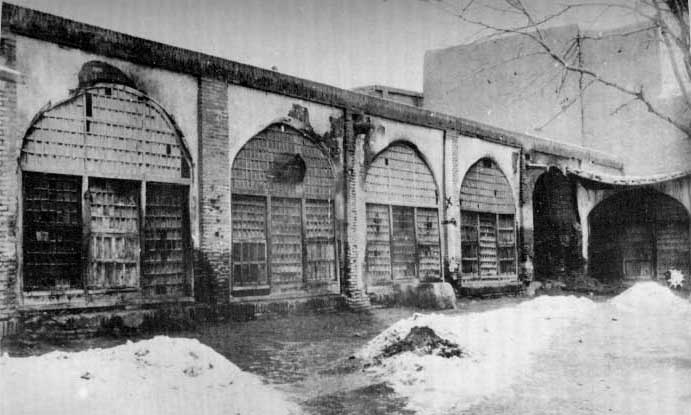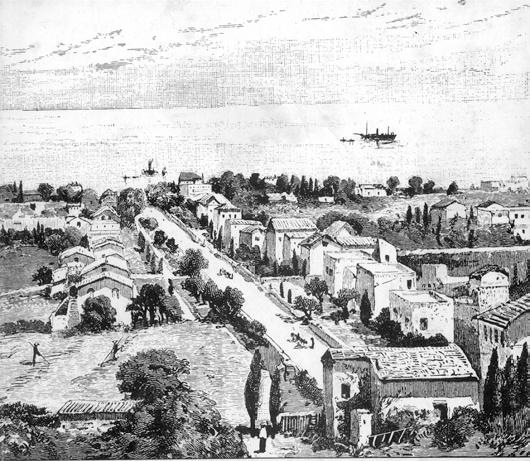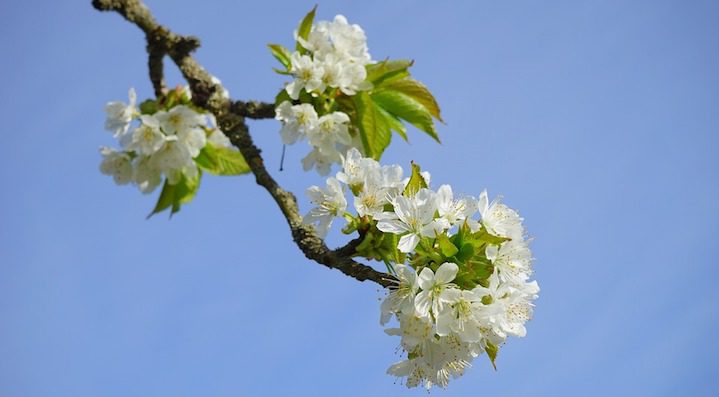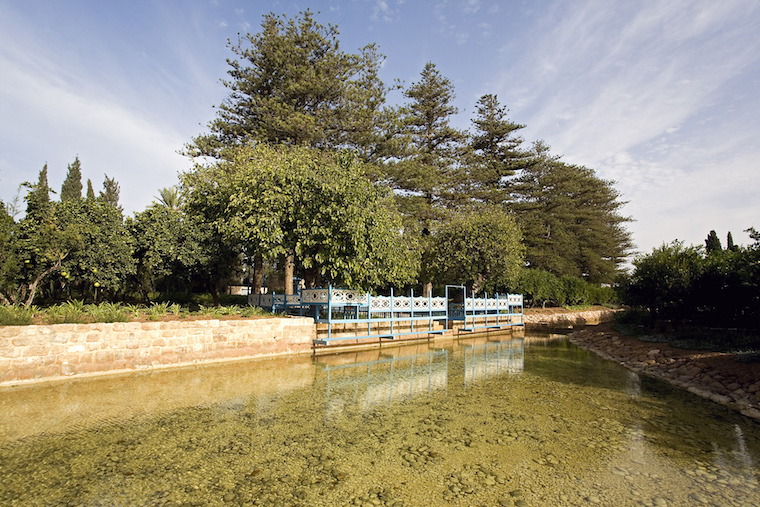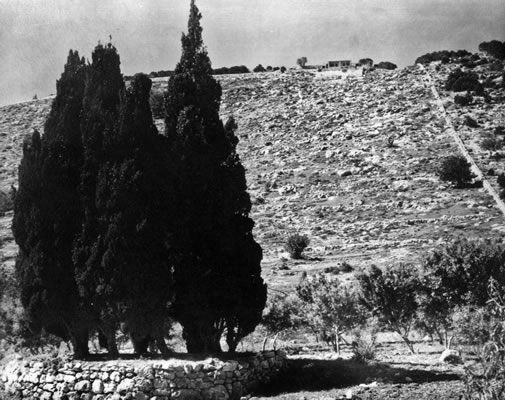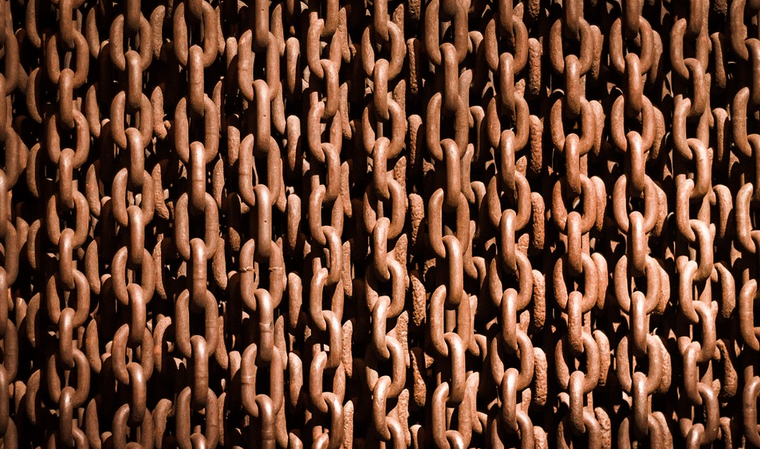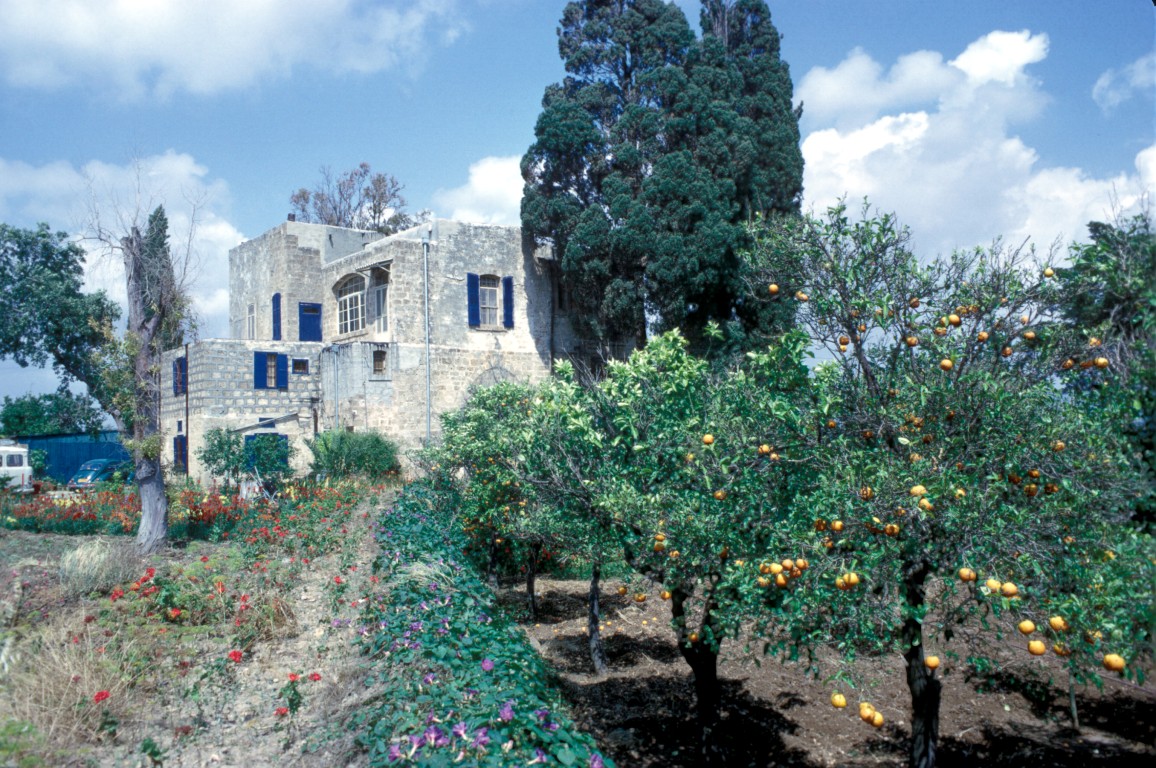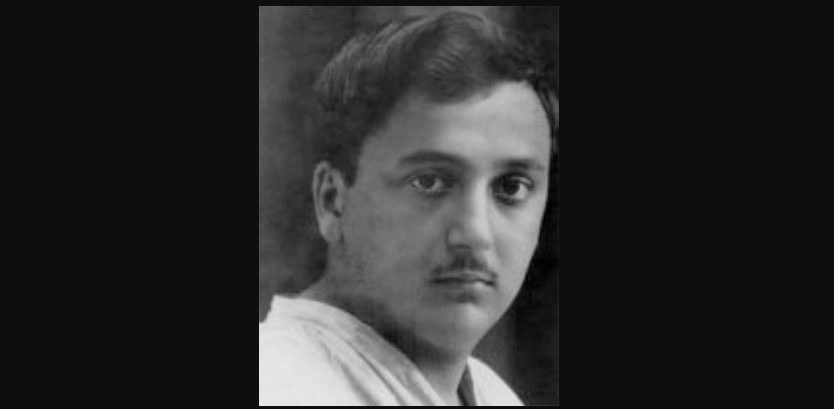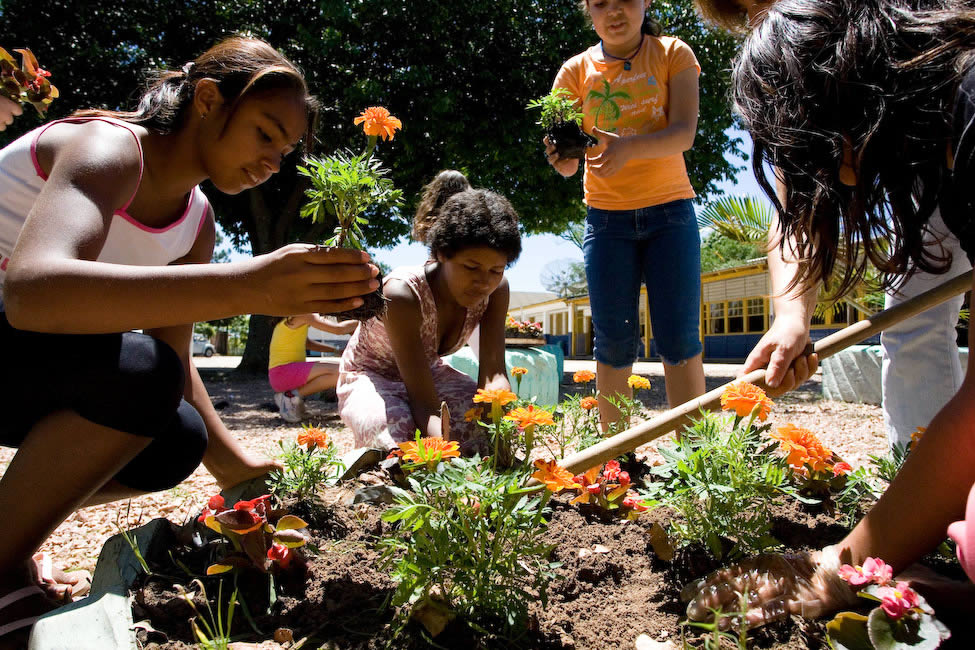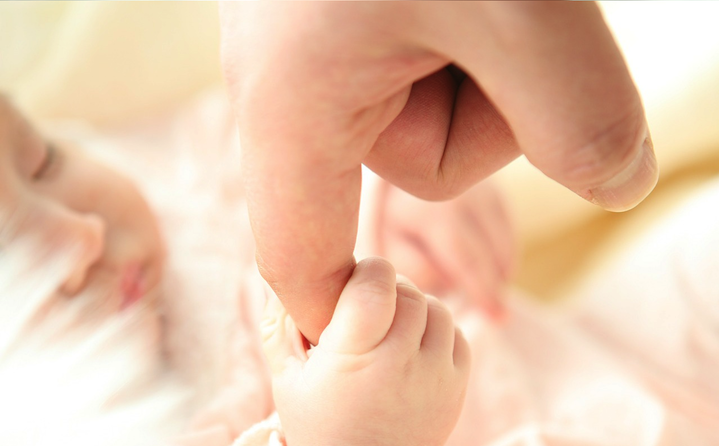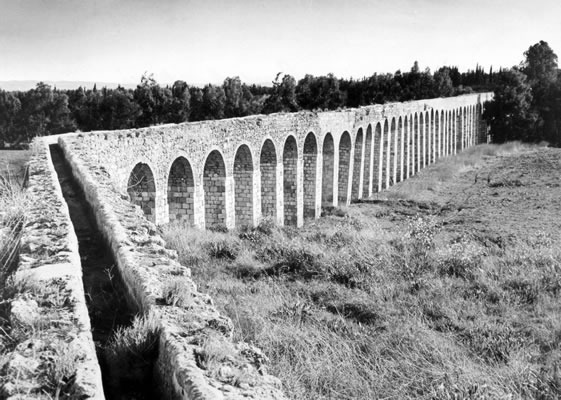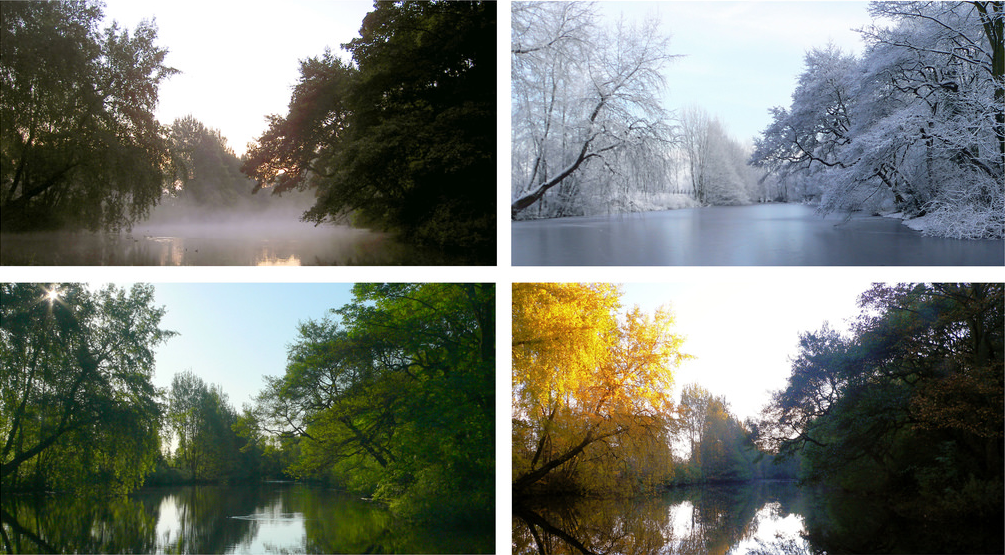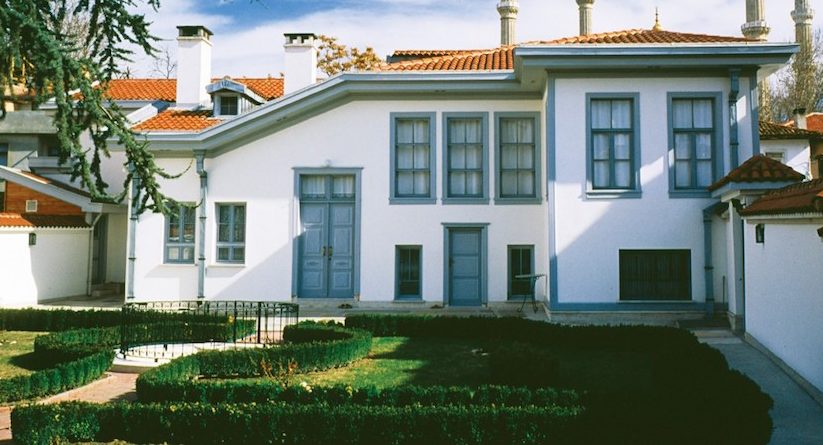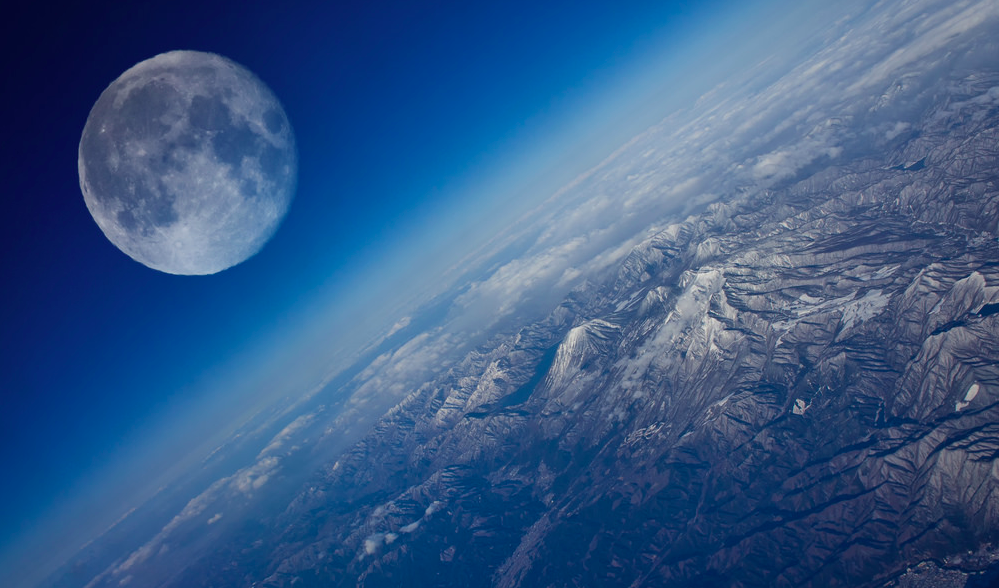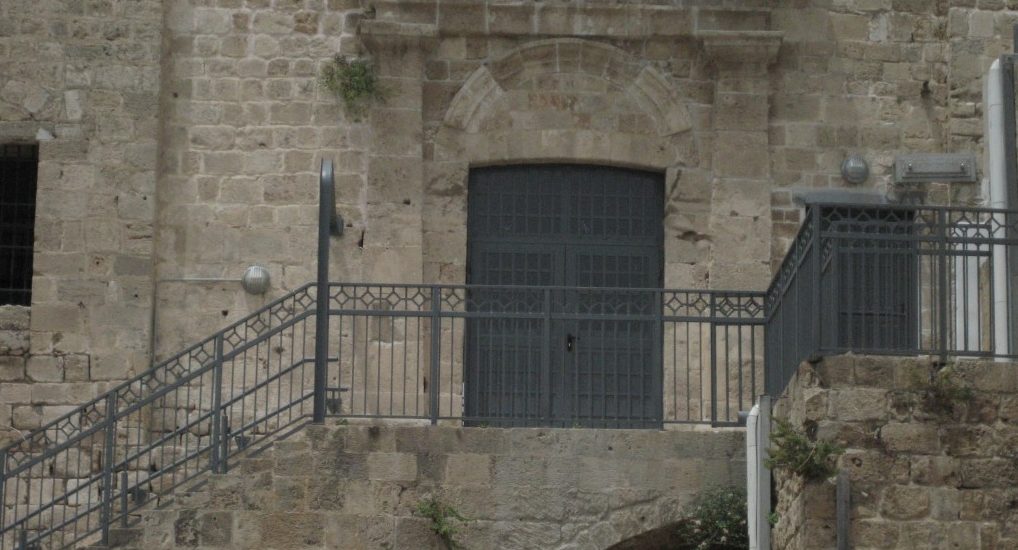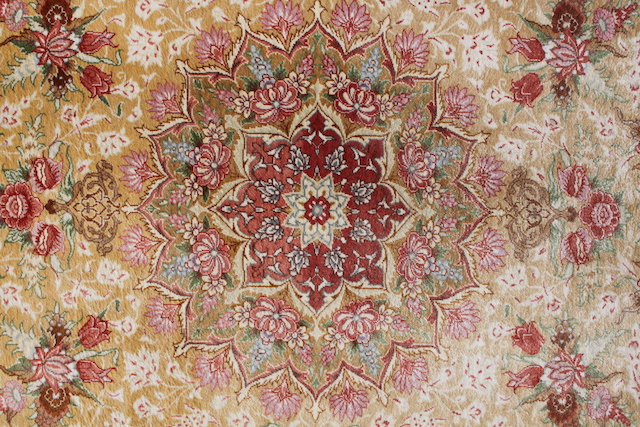Bahaullah's Life
-
Thank you Bahá’u’lláh
My God, my Adored One, my King, my Desire! What tongue can voice my thanks to Thee? I was heedless, Thou didst awaken me. I had turned back from Thee, Thou didst graciously aid me to turn towards Thee. I was as one dead, Thou didst quicken me with the water of life. I was withered, Thou didst revive me with the heavenly stream of Thine utterance which hath flowed forth from the Pen of the All-Merciful.[1] Thank you Bahá’u’lláh The earth is but one country, and mankind its citizens.[2] Thank you Bahá’u’lláh Ye are the fruits of one tree, and the leaves of one branch.[3] Thank you Bahá’u’lláh … the peoples of the world, of whatever race or religion, derive their inspiration from one heavenly Source, and are the subjects of one God.[4] Thank you Bahá’u’lláh…
-
Bahá’u’lláh’s Footsteps on the Mountain
Bahá’u’lláh’s venerable figure slowly ascended the slope of Mt Carmel followed by his disciples. He would have been wearing the light coloured robes and taj headdress characteristic of him; his his sky-blue eyes and face framed by a long beard. Perhaps he carried a staff to assist him in ascending the steep slope of the mountain. His footsteps traced a path leading to a site overlooking the brilliant sea: the most westerly point of the mountain before it plunges down into the sea. Most of the mountain slope was a rock strewn wasteland, little in the vicinity. Below them, however, was an ancient Christian monastery and nearby sites known to local…
-
Mt Carmel: Mountain of the Lord
From time immemorial Mt Carmel has stood the eastern shore of the Mediterranean Sea. Human beings have lived on its slopes for hundreds of thousands of years. Overlooking the sea – Mt Carmel is a great mountain ridge projecting out into the sea and stretching far inland to the south-east. On its northern side stretches a blue and crystal bay. To its east lie the towns and Sea of Galilee where Jesus taught and walked: Cana, Nazareth, Capernaum and Bethsaida. To its south lies the plain of Sharon. And to its west a great sea around which thousands of years of human history unfolded. Its name means “the Vineyard of God”.…
-
The Mansion of Bahji and the Shrine of Bahá’u’lláh
In a previous article we explored Bahá’u’lláh’s immediate departure from the prison city of Akka. Although absolute monarchs had ordered his perpetual imprisonment, in the end, the love those around him had for him, including government officers, opened the gates of the prison city and Bahá’u’lláh left the city. No one tried to stop him. In 1879 Bahá’u’lláh and his family moved to a large house known as the Mansion of Bahji. After a lifetime of suffering, Bahá’u’lláh’s final years were spent in this beautiful residence, though the gardens that now surround it were not there during Bahá’u’lláh’s lifetime. Nonetheless, the house was in the countryside and nature beloved by Bahá’u’lláh.…
-
The Lord is Near – the German Templers of Mount Carmel
The nineteenth century was a time of religious expectation. In Persia religious scholars urged their pupils to seek out the Promised One. In the United States confident predictions were made that Christ would return in 1843 or 1844. Similarly, in Germany such expectations arose. Reverend J.A. Bengel of the Pietist movement in Germany predicted that Christ would return in 1837. Like those who were disappointed in America when they did not see Jesus literally descending on the clouds, new religious movements sought other ways to express their aspiration for the Kingdom of God. The German Templers were inspired by a vision of a revitalised “Temple” – true Christian communities which…
-
The Green Island and the Angel of Trustworthiness
In Tarazat (Ornaments) Bahá’u’lláh counsels his followers to be trustworthy. In describing trustworthiness, Bahá’u’lláh recounts a vision which he saw while on “the Green Island”. The Green Island is a small island of land created by a fork in a stream. It is near the prison city of Akka. Knowing Bahá’u’lláh’s love for nature, Abdu’l Baha leased the land in which the Green Island was found, anticipating that Bahá’u’lláh would be able to enjoy an access to nature that he had been denied in the years of imprisonment in Akka. The creation of the garden on the land was a work of love. Soil for the plants had to be brought. Plants…
-
Bahá’u’lláh is freed from the Prison City
The circumstances in which Bahá’u’lláh was freed from the prison city of Akka provide a remarkable contrast from the circumstances in which he was condemned to perpetual exile within its walls. Secular and religious opponents had brought it about. Nine years had passed since that imprisonment and over the years he had become a revered and loved figure in the prison city. Now, both secular and religious leaders assisted in bringing about Bahá’u’lláh’s release from the prison city – notwithstanding that he was still a condemned prisoner. Abdu’l Baha tells the story of how his departure from the city came about. Bahá’u’lláh loved the beauty and verdure of the country.…
-
Water Restored to Akka and Service to the Community
As time went on the people of Akka began to see the true character of Bahá’u’lláh and his followers. The initial contempt and hatred with which they had been greeted on entering the city changed into respect and even reliance. Bahá’u’lláh in this period largely ceased the open association he had followed with the people until their time in Adrianople and instead Abdu’l Baha took on the task of the many requests and expectations that were placed on them by a diversity of enquirers. The following from the recollections of Tuba Khanum, a daughter of Abdu’l Baha provides a sense: [Abdu’l Baha] would go first to the Bírúní, a large reception…
-
Arrival in the Prison of Akka: Abdu’l Baha
Abdu’l Baha, Bahá’u’lláh’s eldest son, is held up as the best example of what a Baha’i life can be. Most of us struggle to exemplify even occasionally the virtues that were evident in Abdul Baha’s life. Nonetheless, reflection on his life gives us a standard for which to strive, and many stories are told about him. Among those stories, as told by his sister Bahiyyih Khanum, are the first days in the prison of Akka. Initially, conditions were extremely harsh and Baha’u’llah and his followers were confined to the barracks (which were a prison within a prison). As we have seen, in Adrianople, the people, who had come to know Bahá’u’lláh,…
